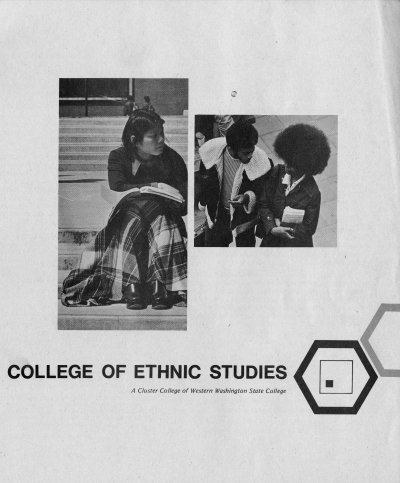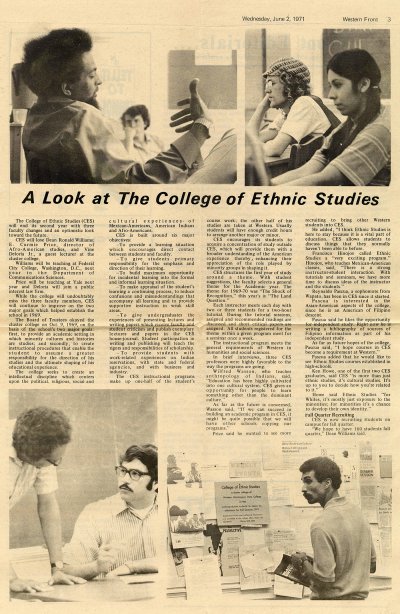Jan. 13 lecture to examine the development of the College of Ethnic Studies at Western
In the mid-1960s, American institutions of higher education witnessed the emergence of Black Studies and Ethnic Studies programs. Factors such as the rise of the Civil Rights Movement, the Black Power Movement and people of color movements, federal policy changes, philanthropic influences, and a trend towards general social change set the stage for Black and Ethnic Studies to develop.
In a presentation Jan. 13 titled "Relating to Race: The College of Ethnic Studies at Western Washington State College," Michael Vendiola will examine the development of the College of Ethnic Studies at Western Washington State College, which he argues can be traced to federal policy changes, active faculty advocates, and (somewhat) of an urban influence. He will also attempt to outline implications for the current dialogue on Ethnic Studies and the greater issue of race relations.
The presentation will take place from 4 to 5:30 p.m. Tuesday, Jan. 13, in the Goltz-Murray Archives Building at the south end of the WWU campus.
Vendiola is a member of the Swinomish, Lummi and Visayan (Filipino) nations. He's also the program manager of the Office of Native Education in the Washington State Office of the Superintendent of Public Instruction and a doctoral student at the University of Washington’s Educational Leadership and Policy Studies program. He's also the former coordinator of the Ethnic Student Center at WWU.
Heritage Resources is a division of Western Libraries which includes Special Collections, the University Archives and the Center for Pacific Northwest Studies. Together the three programs provide for responsible stewardship of unique and archival materials in support of teaching, learning, and research.

